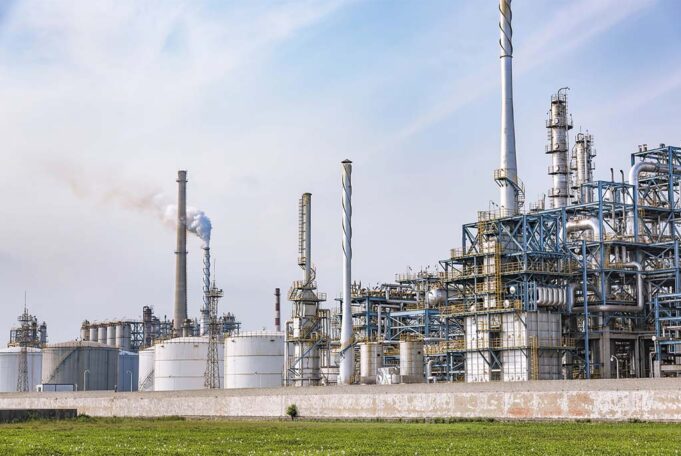The Dangote Petroleum Refinery is now 97 per cent completed, the Nigerian Midstream and Downstream Petroleum Regulatory Authority (NMDPRA) has said.
The refinery with 650,000 barrels per day installed capacity is expected to double the total output of Nigeria’s existing refining infrastructure and meet 100 per cent of the Nigerian requirement of all refined products.
The NMDPRA Chief Executive, Farouk Ahmed, made the disclosure in Abuja when representatives of the Dangote Petroleum Refinery visited him to present the work plan for the facility for 2022/2023 as the regulatory agency for the sector.
Ahmed said: “Today, representatives of the Dangote Refinery and Petrochemicals presented their 2022/2023 work plan to the Authority which showed that the refinery project is estimated to be at 97 per cent completion.
“Dangote Oil Refinery is a 650,000 barrels per day integrated refinery project under construction in the Lekki Free Trade Zone, Lagos. It is expected to be Africa’s biggest oil refinery and the world’s biggest single-train facility.”
He further reiterated the importance of the refinery to the country, assuring that the NMDPRA will give all necessary support to ensure timely completion and kick-start operations.
READ ALSO: Kogi govt: We own Obajana Cement, not Dangote
Speaking on the refinery project, the Group Executive Director, Strategy, Portfolio Development and Capital Projects, Dangote Industries Limited, Devakumar Edwin, said the refinery would stimulate economic development in Nigeria, adding that would meet 100 per cent of the Nigerian requirement of all liquid products (gasoline, diesel, kerosene, and aviation jet), and also have surplus of each of these products for export.
“The high volume of petrol output from the refinery would transform Nigeria from a petrol import-dependent country to an exporter of refined petroleum products,” he stated adding that the refinery would produce Euro-V quality gasoline, diesel, jet-fuel, kerosene and poly-propylene for local consumption and also have surplus of each of the products for export.
On employment generation, he disclosed that over 30,000 people were currently working at refinery project sites through various contractors, noting that when operational, the refinery will generate over 100,000 direct and indirect jobs for the youths.
On local content development, Edwin said the company has trained over 600 artisans selected from the host communities in the areas of masonry, AC electricians, plumbing, welding, iron bending, and auto mechanics.
The refinery design, according to the company, conforms to World Bank, United States Environmental Protection Agency, the European Union (EU), and the NMDPRA standards.
The refinery has its own dedicated steam and power generation system with adequate standby units of reliable/uninterrupted utility supply to operating plants.435 Power plant in refinery.
According to the Dangote Group, the completion of Africa’s biggest petroleum refinery and the world’s largest single-train facility is expected to have a significant impact on Nigeria’s foreign exchange through import substitution and substantial savings in earnings.
It is expected, that once the refinery commences production, the pressure on the nation’s currency will reduce, and significant inflow of forex is expected to come in through sales from the refinery.
On completion of the refinery, it is estimated that Nigeria will import zero petroleum oil products – down from approximately $50 billion current oil product imports per year.
- Wike approves employment of 34 resident doctors for 7-year training - April 2, 2025
- Sterling Bank removes transfer fees on online transactions - April 2, 2025
- Ex-policeman kills 2 family members, one other over land dispute - April 2, 2025








